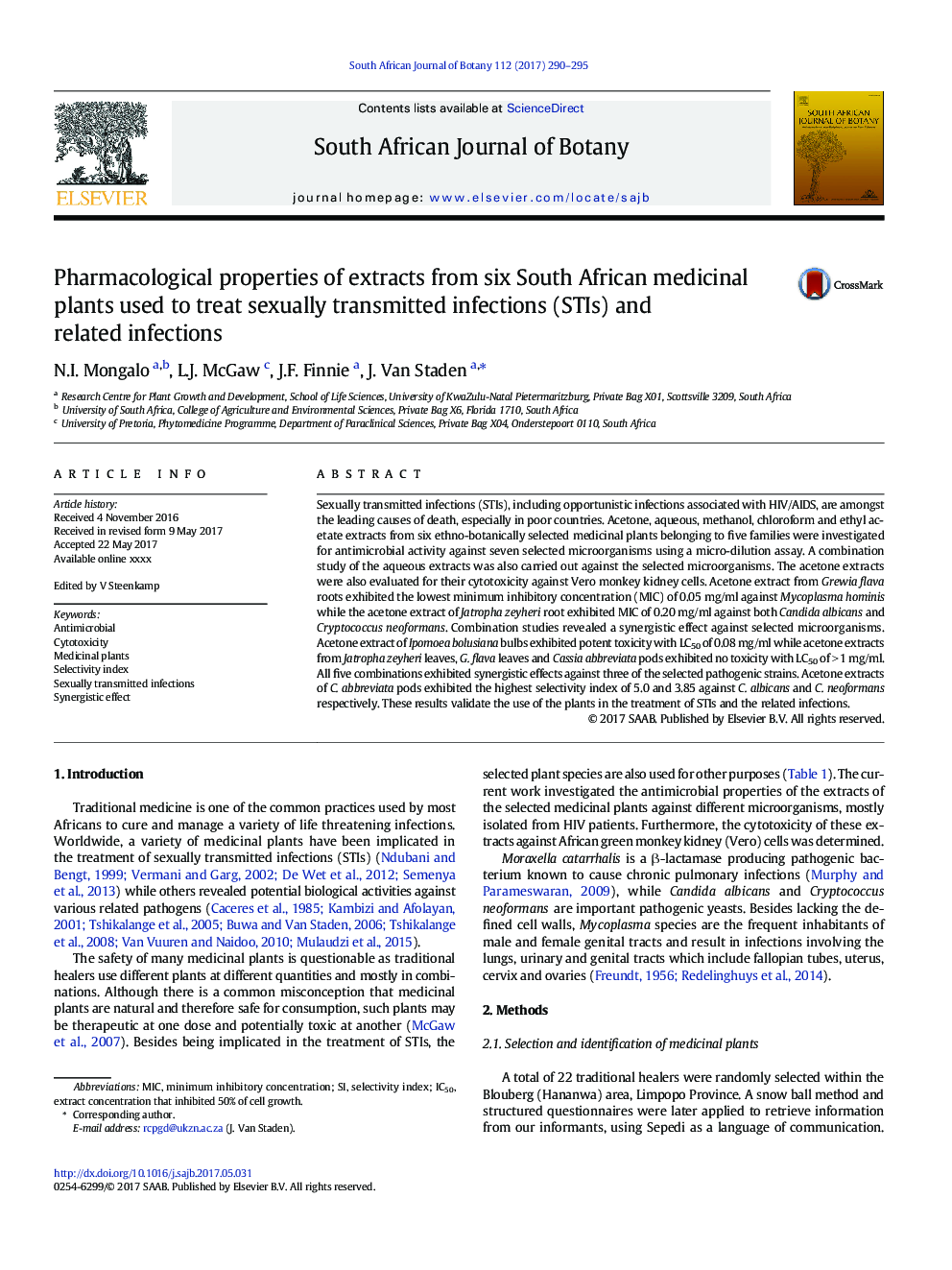| Article ID | Journal | Published Year | Pages | File Type |
|---|---|---|---|---|
| 5763182 | South African Journal of Botany | 2017 | 6 Pages |
Abstract
Sexually transmitted infections (STIs), including opportunistic infections associated with HIV/AIDS, are amongst the leading causes of death, especially in poor countries. Acetone, aqueous, methanol, chloroform and ethyl acetate extracts from six ethno-botanically selected medicinal plants belonging to five families were investigated for antimicrobial activity against seven selected microorganisms using a micro-dilution assay. A combination study of the aqueous extracts was also carried out against the selected microorganisms. The acetone extracts were also evaluated for their cytotoxicity against Vero monkey kidney cells. Acetone extract from Grewia flava roots exhibited the lowest minimum inhibitory concentration (MIC) of 0.05Â mg/ml against Mycoplasma hominis while the acetone extract of Jatropha zeyheri root exhibited MIC of 0.20Â mg/ml against both Candida albicans and Cryptococcus neoformans. Combination studies revealed a synergistic effect against selected microorganisms. Acetone extract of Ipomoea bolusiana bulbs exhibited potent toxicity with LC50 of 0.08Â mg/ml while acetone extracts from Jatropha zeyheri leaves, G. flava leaves and Cassia abbreviata pods exhibited no toxicity with LC50 of >Â 1Â mg/ml. All five combinations exhibited synergistic effects against three of the selected pathogenic strains. Acetone extracts of C. abbreviata pods exhibited the highest selectivity index of 5.0 and 3.85 against C. albicans and C. neoformans respectively. These results validate the use of the plants in the treatment of STIs and the related infections.
Keywords
Related Topics
Life Sciences
Agricultural and Biological Sciences
Agronomy and Crop Science
Authors
N.I. Mongalo, L.J. McGaw, J.F. Finnie, J. Van Staden,
